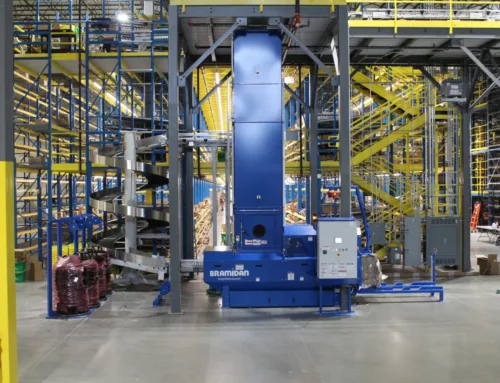
In today’s fast-paced business environment, safeguarding your assets is more crucial than ever. Asset recovery services can help you maximize returns by efficiently tracing and recovering lost or misappropriated assets. Whether it’s due to theft, fraud, or other forms of mismanagement, these services provide the expertise and tools needed to reclaim what’s rightfully yours.
Understanding Asset Recovery Services
Asset recovery services involve locating and reclaiming lost, stolen, or misappropriated assets. These assets can range from physical property to financial assets such as bank accounts, stocks, and bonds. The goal is to ensure that businesses can recover as much value as possible from these assets, thereby minimizing losses and maximizing returns.
Key Components of Asset Recovery
- Asset Tracing: This involves tracking the history and current location of assets. It requires specialized knowledge and tools to trace assets through various channels and jurisdictions.
- Legal Proceedings: Sometimes, recovering assets may require legal action. Professionals in asset recovery services can navigate the complex legal landscape to reclaim assets.
- Negotiation and Settlement: In some cases, negotiation may be the most effective way to recover assets. Skilled negotiators can often reach settlements that are favorable to the business.
- Asset Management: Once recovered, assets need to be managed effectively to maximize their value. This includes decisions about whether to sell, reinvest, or otherwise utilize the recovered assets.
The Importance of Asset Tracing

Why Asset Tracing Matters
Asset tracing is a critical first step in the recovery process. It involves identifying the location and ownership of assets, often through financial records, property records, and other documentation. Effective asset tracing can uncover hidden or misappropriated assets, providing a clear path to recovery.
Techniques Used in Asset Tracing
- Financial Forensics: This involves analyzing financial records to trace the movement of money and identify hidden assets.
- Public Records Search: Public records can provide valuable information about asset ownership and transfers.
- Surveillance and Investigations: In some cases, physical surveillance and on-the-ground investigations may be necessary to trace assets.
Benefits of Asset Recovery Services
Financial Recovery
The most obvious benefit of asset recovery services is the financial return. By reclaiming lost or stolen assets, businesses can recover a significant portion of their losses. This can have a direct impact on the bottom line, improving financial stability and profitability.
Deterrence of Fraud
Implementing asset recovery services can also act as a deterrent to fraud and theft. When employees and other stakeholders know that the company takes asset recovery seriously, they are less likely to engage in fraudulent activities.
Improved Asset Management
Asset recovery services also contribute to better asset management. By identifying and recovering lost assets, businesses can gain a clearer picture of their overall asset portfolio. This can lead to more informed decision-making and better resource allocation.
Choosing the Right Asset Recovery Service

Factors to Consider
- Experience and Expertise: Look for a service provider with a proven track record in asset recovery. They should have the expertise and tools needed to trace and recover a wide range of assets.
- Legal Knowledge: The provider should have a strong understanding of the legal aspects of asset recovery. This includes knowledge of international laws and regulations, as assets are often moved across borders.
- Reputation: Consider the reputation of the service provider. Look for reviews, testimonials, and case studies to gauge their effectiveness and reliability.
- Cost: While cost shouldn’t be the only factor, it’s important to consider the fees and charges associated with the service. Ensure that the potential returns justify the expense.
Questions to Ask
- What is your success rate in recovering assets?
- How do you approach asset tracing and recovery?
- Can you provide references or case studies?
- What are your fees and how are they structured?
- How long does the recovery process typically take?
Case Studies: Successful Asset Recovery
Case Study 1: Financial Fraud
A mid-sized company discovered that a former employee had embezzled significant funds over several years. The company hired an asset recovery service to trace the stolen funds. Through financial forensics and public records searches, the service was able to locate the embezzled money in various offshore accounts. Legal proceedings were initiated, and the company successfully recovered the stolen funds.
Case Study 2: Intellectual Property Theft
A tech startup found that a competitor had illegally obtained and used their proprietary technology. An asset recovery service was brought in to trace the misuse of the intellectual property. Through a combination of digital forensics and legal action, the startup was able to reclaim their technology and receive compensation for the damages.
Conclusion
Asset recovery services play a vital role in helping businesses reclaim lost or stolen assets. By employing techniques such as asset tracing, legal proceedings, and skilled negotiation, these services can maximize financial returns and improve overall asset management. When choosing an asset recovery service, it’s crucial to consider factors such as experience, legal knowledge, reputation, and cost. With the right partner, businesses can not only recover their assets but also deter future fraud and improve their financial stability.
Maximize your returns today by investing in professional asset recovery services.
Share This Story, Choose Your Platform!
Get In Touch
Phone: (847) 722-6942
Email: sales@end2endlogix.com
Web: end2endlogix.com


